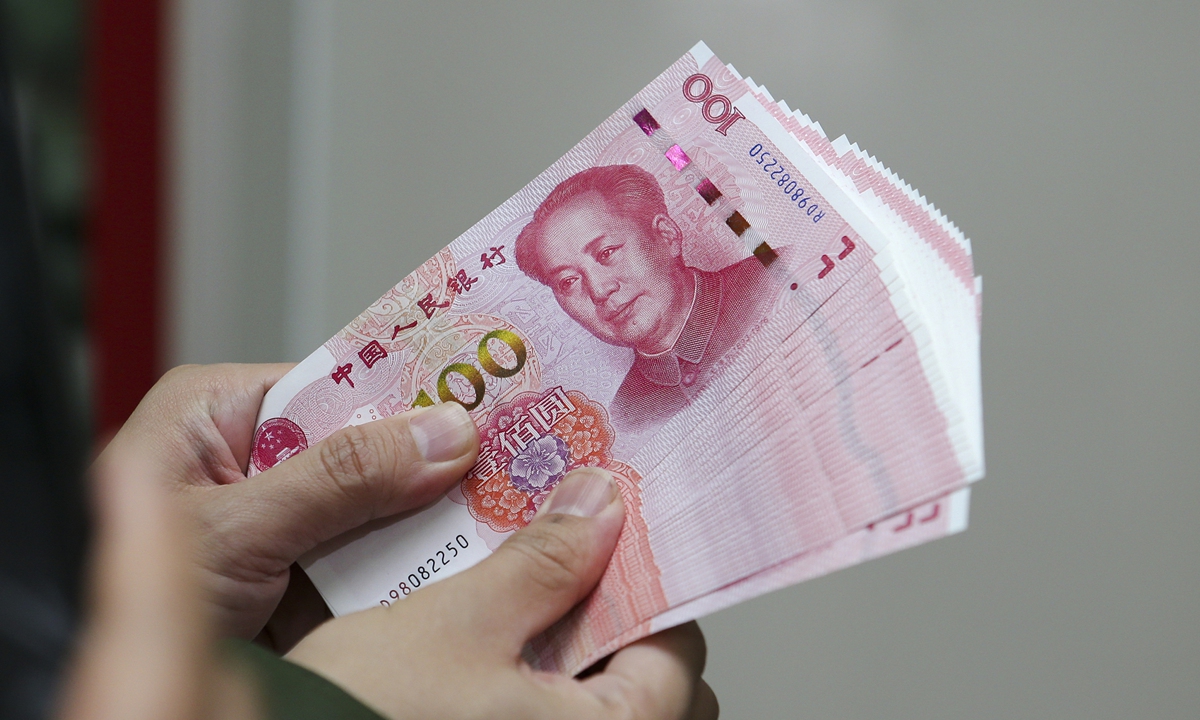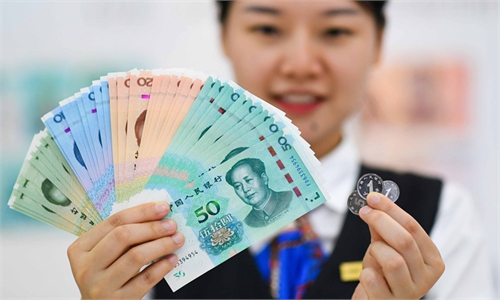China able to adapt to US Fed policy changes, yuan to maintain at stable level despite recent volatility: forex official

Photo: CFP
China is capable of adapting to policy changes from the US Federal Reserve, and the Chinese currency will also remain stable despite recent volatility, economists and Chinese officials said, citing a resilient Chinese economy, long-term positive development, and an expected current account surplus.
Two-way fluctuations will continue, and the yuan will remain stable and balanced, said Wang Chunying, spokesperson of the State Administration of Foreign Exchange (SAFE) at a press conference on Friday.
Yuan assets still have long-term investment value, which will provide support for the stability of the RMB exchange rate, Wang said.
China's economy posted a 4.8 percent growth in the first quarter of 2022. Experts interviewed by the Global Times said they are confident that the country will be able to achieve annual economic growth of around 5.5 percent with proactive monetary and fiscal policies.
The remarks came as the Chinese currency had significantly weakened this week, with its official midpoint 0.8 percent lower at 6.4596 per US dollar on Friday, the lowest since October.
The onshore yuan weakened below 6.49 per US dollar for the first time since August, closing at 6.4875 on Friday. It has depreciated by more than 1 percent over the past week and by nearly 2 percent this month.
The official said that looking from a global perspective, the yuan already showed its strength compared with other currencies as the US signals more aggressive rate hikes.
Since the beginning of the year, as of Thursday, the US dollar index has risen 4.2 percent, with the euro, the pound and the yen depreciating between 4 percent and 10 percent against the US dollar, Wang said.
Federal Reserve Chairman Jerome Powell affirmed the central bank's determination to bring down inflation and said Thursday that aggressive rate hikes are possible as soon as next month.
The prospect of aggressive hikes was a boon to the US dollar, which surged to a more than two-year high on Friday.
From a historical experience, the Fed's monetary policy adjustments, especially interest rate hikes, usually have a spillover effect on cross-border capital flow across countries. However, some economies with fundamental weaknesses have been hit the hardest, Wang said.
As the resilience of China's foreign exchange market has been increasing in recent years, China has the foundation and conditions to adapt to the current round of Fed policy adjustments, Wang noted.
"The foreign exchange regulator will also closely monitor the pace of the monetary policy changes by the Fed and their impact, evaluate the operations of our country's foreign exchange market in real time and maintain market stability," Wang said.
Apart from Fed adjustments, economists also warned about more external uncertainties such as geopolitical risks, calling for more efforts such as pushing for yuan internalization, strengthening risks controls and reform in the foreign exchange market to defuse potential fluctuations.
Geopolitical risks are also rising in China's forex market, Guan Tao, chief global economist at BOC International (China) and a former senior official at SAFE, told the Global Times, noting that the Ukraine crisis will lead to a series of direct and indirect effects on China.
Guan warned that as China is now more integrated into the global economy, once there is financial turmoil or recession, China may not be able to survive on its own. It's possible for the yuan's exchange rate to come under pressure again.
"Under such circumstances, we should strengthen the research and judgment of macro-prudential management of the foreign exchange market, strengthen risk prevention and control in foreign exchange, and stabilize market expectations," Guan said.


